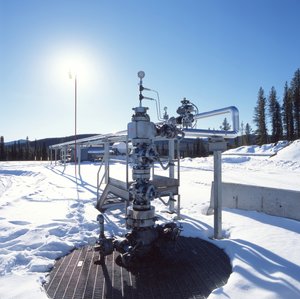
MOSCOW CHANGES TACTICS IN UKRAINE
Publication: Eurasia Daily Monitor Volume: 3 Issue: 24
By:

According to as yet unconfirmed but largely credible reports on February 2 from Kyiv, officials in the presidency and government have authorized the immediate signing of a gas agreement and six attachments with Russia. Those documents are said to ensure Russian monopoly use and possibly partial control of Ukraine’s gas transit system, as well as Russian supply monopoly and price-setting power in Ukraine, for many years to come.
The reported development, seen against the backdrop of a crisis of state institutions in Ukraine (see EDM, January 31), suggests that Moscow’s tactics have moved beyond the “gas attack” to inside dealings with some key Ukrainian office holders.
From the Kremlin’s standpoint, the crisis of governance in Ukraine opens a strategic opportunity to roll back the Orange Revolution’s democratic gains and re-assert Russia’s economic and political influence in the country. While advancing that strategic goal in the run up to the March parliamentary elections in Ukraine, Moscow has changed its tactics in mid-stream.
Initially, Moscow envisaged a prolonged cutoff in gas supplies. This was to hit hard at Ukraine’s economy, discredit President Viktor Yushchenko and his Our Ukraine bloc irreparably with the electorate, turn Europe against Ukraine by charging that Kyiv was “stealing” Europe’s gas from the transit pipelines, and set the stage for transferring those pipelines from Ukrainian to shared Russian-Ukrainian jurisdiction. Kremlin-controlled media and the officially licensed punditry laid those goals bare and rejoiced in anticipation of the “punishment” to Yushchenko’s team at the parliamentary elections.
Those tactics changed markedly, however, on the advice of several Kremlin consultants, preeminently Gleb Pavlovsky, Sergei Markov, and Vyacheslav Nikonov. Although these consultants were partly responsible for the defeat of Moscow’s policy in the 2004 Ukrainian presidential election, they now argued that policy must not be guided by considerations of revanche or “punishing” Yushchenko. In articles and interviews during late December and January — and undoubtedly in internal channels to the Kremlin — they argued that the initial choice of tactics was bound to misfire: Ukrainian voters would blame Russia for excessive price hikes and supply cuts; a rally-around-the-flag syndrome would ensue in Ukraine; Orange political fortunes would be lifted by a second wind from their slump; Ukraine’s eastern regions, strongholds of Russia-oriented parties, would be the hardest hit by the “gas attack;” Europe would ultimately side with Ukraine against Russia; and, the longer the confrontation, the higher the political costs to Russia and its allies in Ukraine.
These consultants called for resuming gas supplies to Ukraine at prices fixed in Moscow and working flexibly with several political forces in Ukraine. They anticipate that Yushchenko and Our Ukraine would have to contend with stronger oligarchic and pro-Russia groups in the new parliament. Accordingly, these Kremlin consultants recommended political accommodation with a weakened Yushchenko and using this relationship in the post-election period to advance Russia’s objectives in Ukraine. This tactic corresponds with Yushchenko’s own attempts to reach out to the Kremlin for support to his embattled presidency.
The preliminary gas agreement signed on January 4, the demonstrative meeting between Russian President Vladimir Putin and Yushchenko in Astana on January 11 (with the promise of a follow-up meeting), and the scheduled creation within the next few days of a Russian-Ukrainian gas company based on the notorious RosUkrEnergo, are the landmarks of this process thus far. The Kremlin has significantly toned down its anti-Orange Revolution propaganda and ceased it altogether with regard to Yushchenko. However, it wants the latter to dismiss the “nationalist” Minister of Foreign Affairs Borys Tarasyuk after the elections. Moscow is also signaling readiness for a political deal with Yulia Tymoshenko as part of a post-election coalition government, though ruling out her return as prime minister.
While continuing to place a major stake on defeated presidential candidate Viktor Yanukovych, according to Pavlovsky, Russia needs the enfeebled Yushchenko as a “partner who controls and to some extent influences state policy and can make decisions. And so Russia works a lot with Yushchenko. [However], his weakness is turning into a problem for Moscow, [which] needs a strong partner in Ukraine” (Glavred, January 26). Thus, the perceived decline in Yushchenko’s authority seems to raise the question whether he can deliver on understandings that Moscow says it may be working out with him.
(Survey based on Russian and Ukrainian media coverage of pre-election developments in Ukraine, January 2006).




